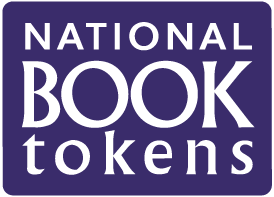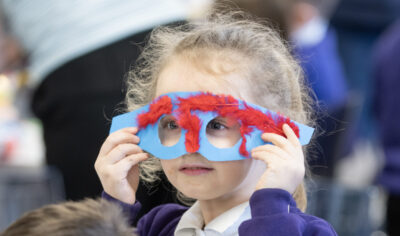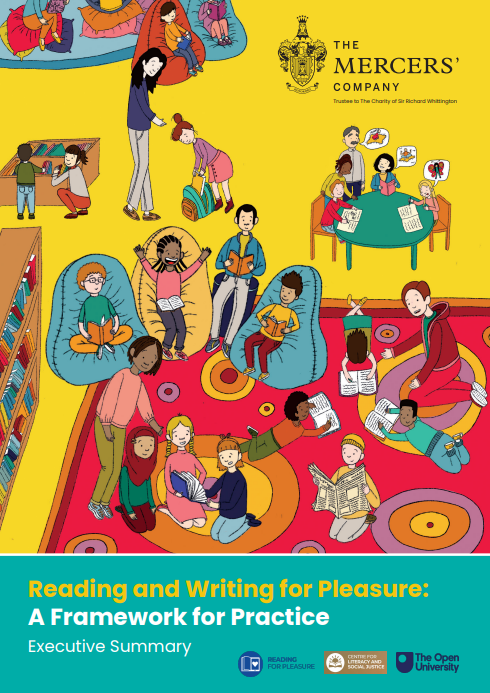Introducing the series
Listen in to practitioners in conversation discussing how to overcome key barriers to supporting children’s reading for fun. Developed in partnership with The Open University’s Reading for Pleasure team.

Introductory session
Readers don’t always see genuine role models.
This episode discusses the journey to becoming a genuine role model, how to support older children who haven’t yet chosen to read and effectively connecting reading to children’s interests.
Supporting materials
- Find out more about being a reading teacher on The Open University website
- Explore The Open University’s practice example on using Reading Rivers
- Share staff reading identities using World Book Day’s resource
Readers don’t always feel confident sharing their thoughts about books
This episode discusses creating an ethos and culture which supports children to be open about their reading choices and how to communicate reading rights to parents.
Supporting materials
- Read more about building reading communities on The Open University website
Readers don’t always want to read the same thing
This episode discusses building children’s confidence in their own reading choices, the importance of genuine teacher role models and taking care over how recommendations are offered.
Supporting materials
- Read more about teachers reading groups on The Open University website
- Read more about informal book talk on The Open University website
- Use World Book Day’s reading recommendation bingo to gather reading ideas
Readers don’t always find it easy to concentrate and get distracted
This episode discusses creating a physical and emotional environment which supports children’s reading choices and discusses reading routines that model making ‘the right choice at the right time’ to children.
Supporting materials
- Read more about social reading environments on The Open University website
- Use World Book Day’s reading mood badges to gather reading ideas
Readers don’t always want to read the same thing
This episode draws together the themes of the sessions so far and invites you to do the same. Featuring reflections from practicing teachers Amy and Scott as well as how the themes connect to research lead by Professor Teresa Cremin
Supporting materials
Use World Book Day’s book prescription to support students to identify reading they might enjoy
Reading and Writing for Pleasure: Framework for Practice, for practitioners.
This Framework for Practice, commissioned by The Mercers Company and produced by THe Open University provides a research-informed basis for developing practice that nurtures young people’s reading and writing for pleasure. It draws insights from international research literature and data from six London-based literacy programmes – led by Doorstep Library , Literacy Pirates , Ministry of Stories, Primary Shakespeare Company, World Book Day and the National Literacy Trust together with the Reading Agency, that jointly led ‘Get Islington Reading’.
Further reading
Brandt, L., Sharp, A. and Gardner, D,(2021) ‘Examination of Teacher Practices on Student Motivation for Reading’ The Reading Teacher, Vol 74.6 Pg 657-838
Cremin, T. (2023) ‘Reading for pleasure: Recent research insights’, School Libraries in View (SLIV), Vol 47 pg 6–12.
Cremin, T, Mottram, M., Collins, F. and Powell, S. (2014) ‘Building Communities of Engaged Readers: Reading for pleasure’, London: Routledge.
Cockroft, C. and Atkinson, C. (2017) ‘I just find it boring’: Findings from an affective adolescent reading intervention’ Support for Learning (SfL), Vol 32.1, pg 41-59
Fisher, D. and Frey, N. (2018) ‘Raise Reading Volume Through Access, Choice, Discussion, and Book Talks’ The Reading Teacher, Vol 72.1, pg 89-97
Hall, L.A. (2012). ‘Rewriting identities: Creating spaces for students and teachers to challenge the norms of what it means to be a reader in school’. Journal of Adolescent and Adult Literacy, Vol 55, pg 368-373.
McGeown, S., Bonsall, J., Andries, V., Howarth, D., Wilkinson, K. (2020) ‘Understanding reading motivation across different text types: qualitative insights from children’ Journal of Research in Reading, Vol 43.4, pg 597-608
McGeown, S., Norgate, R., & Warhurst, A. (2012). ‘Exploring intrinsic and extrinsic reading motivation among very good and very poor readers’. Educational Research, Vol 54.3, pg 309-322.
Pennac, D (2006), ‘The Rights of the Reader’, London: Walker
Reedy and Carvalho (2021) ‘Children’s perspectives on reading, agency and their environment: what can we learn about reading for pleasure from an East London primary school?’, International Journal of Primary, Elementary and Early Years Education, Vol 49.2
Scholes, L. (2019) ‘Differences in attitudes towards reading and other school-related activities among boys and girls’ Journal of Research in Reading, Vol 42.3, pg 485-503









